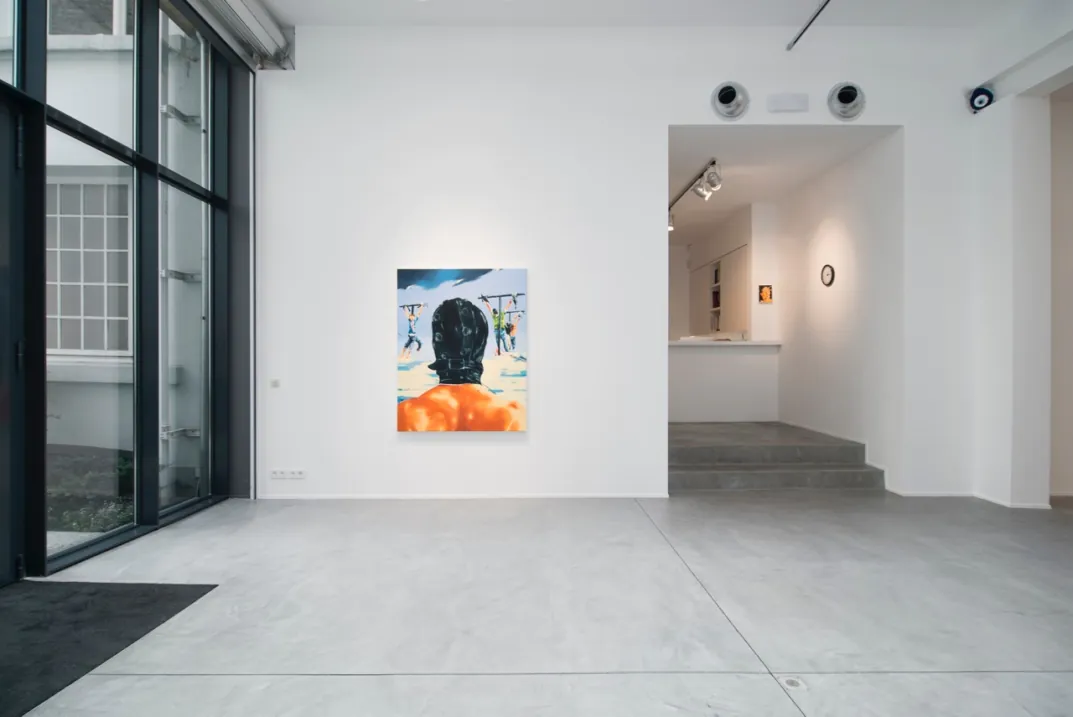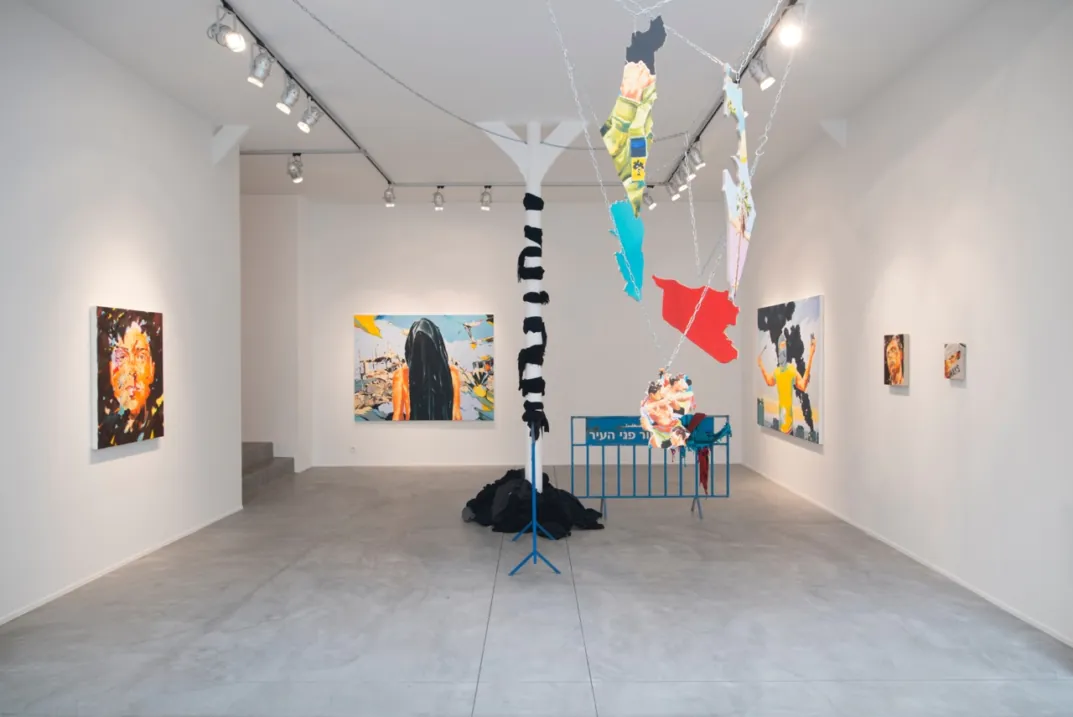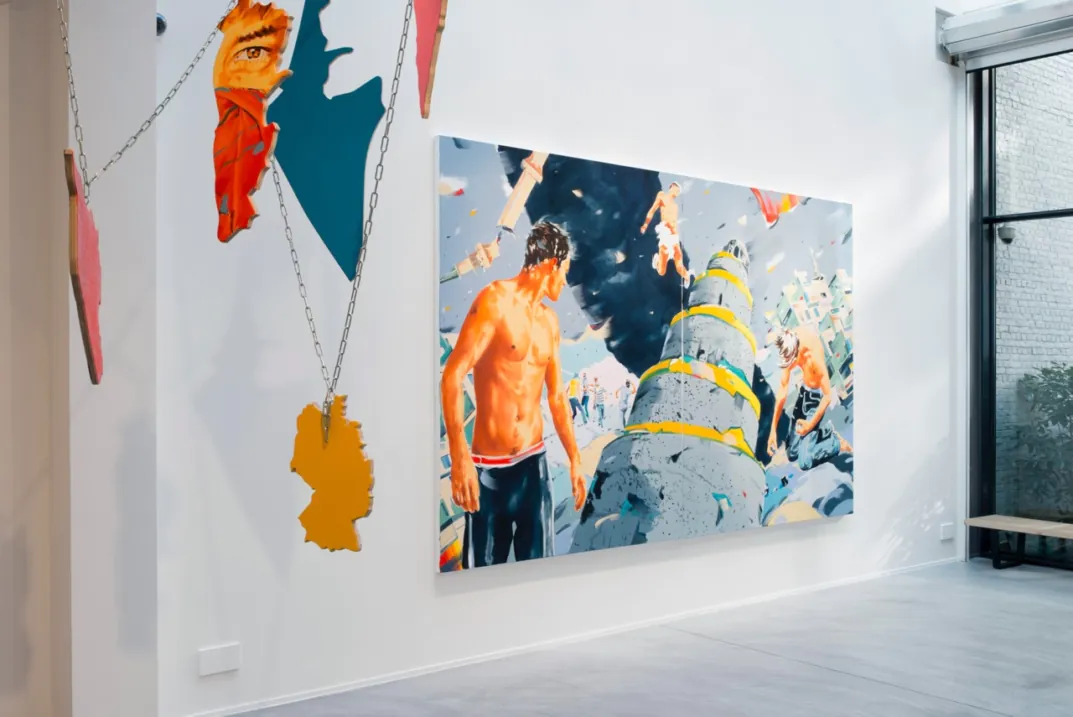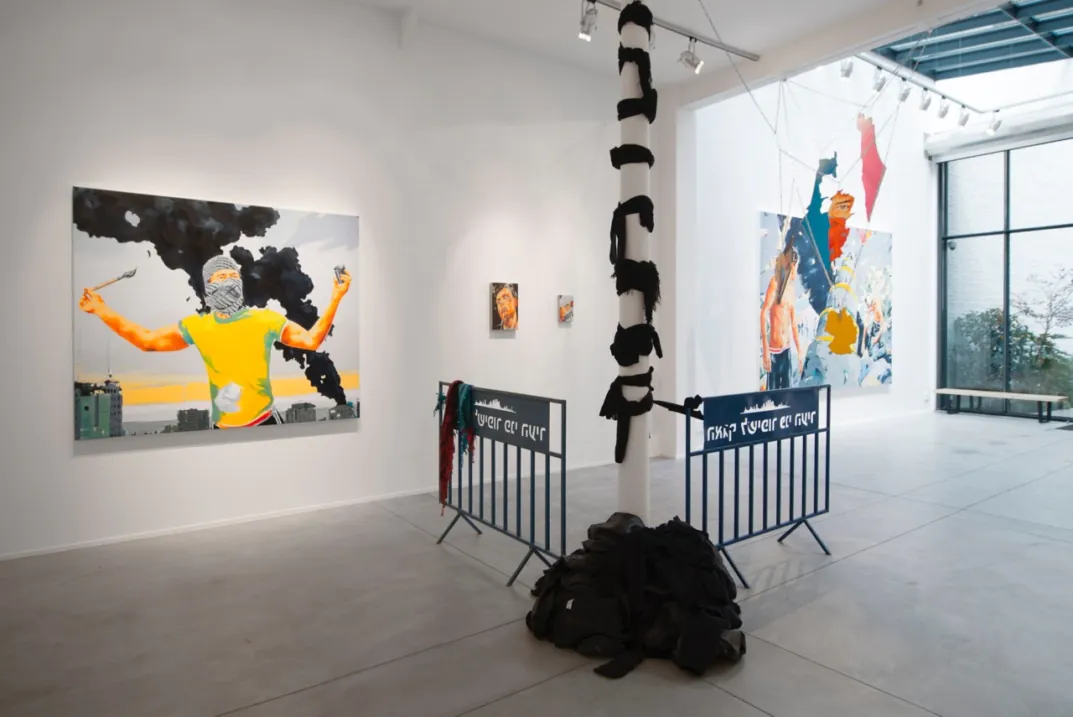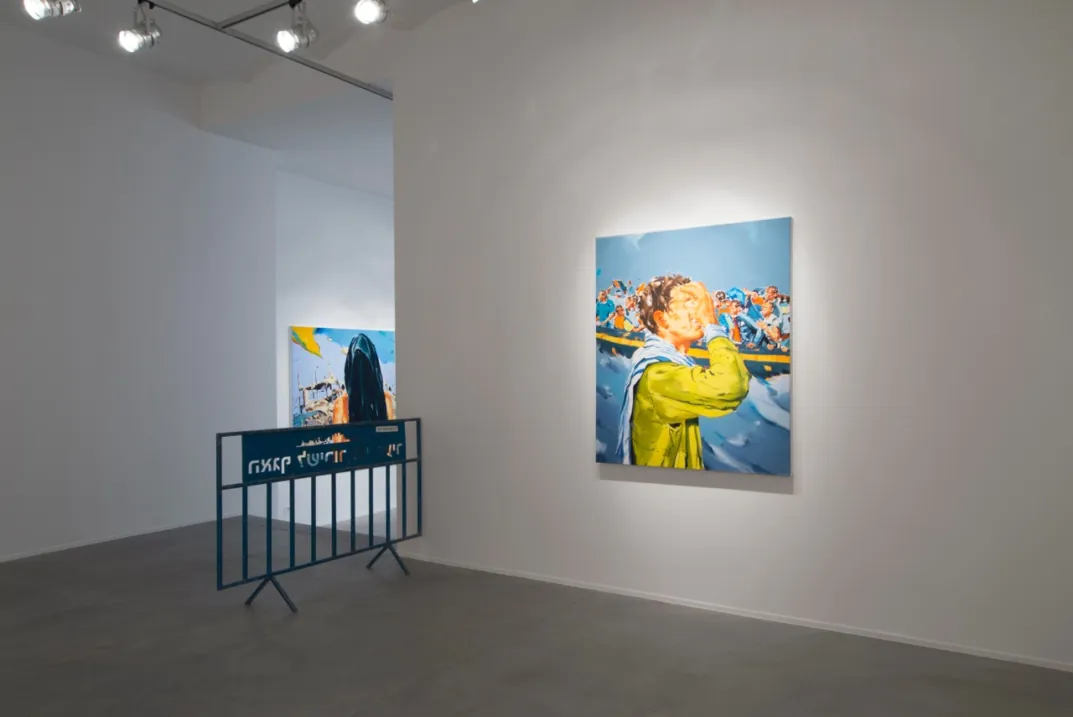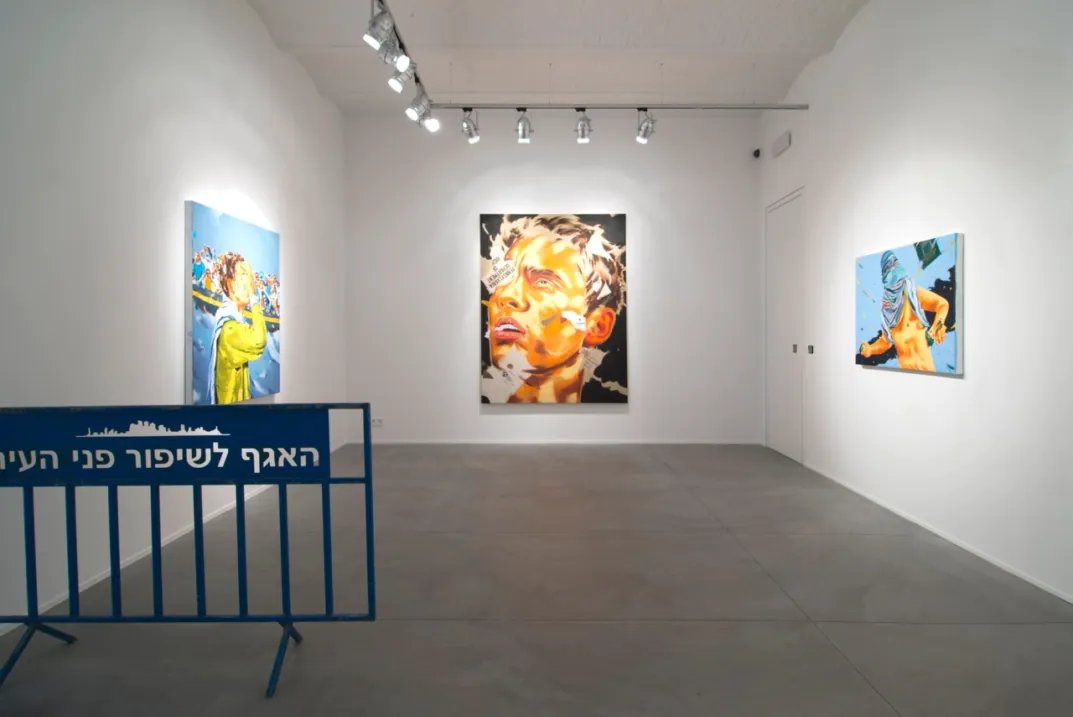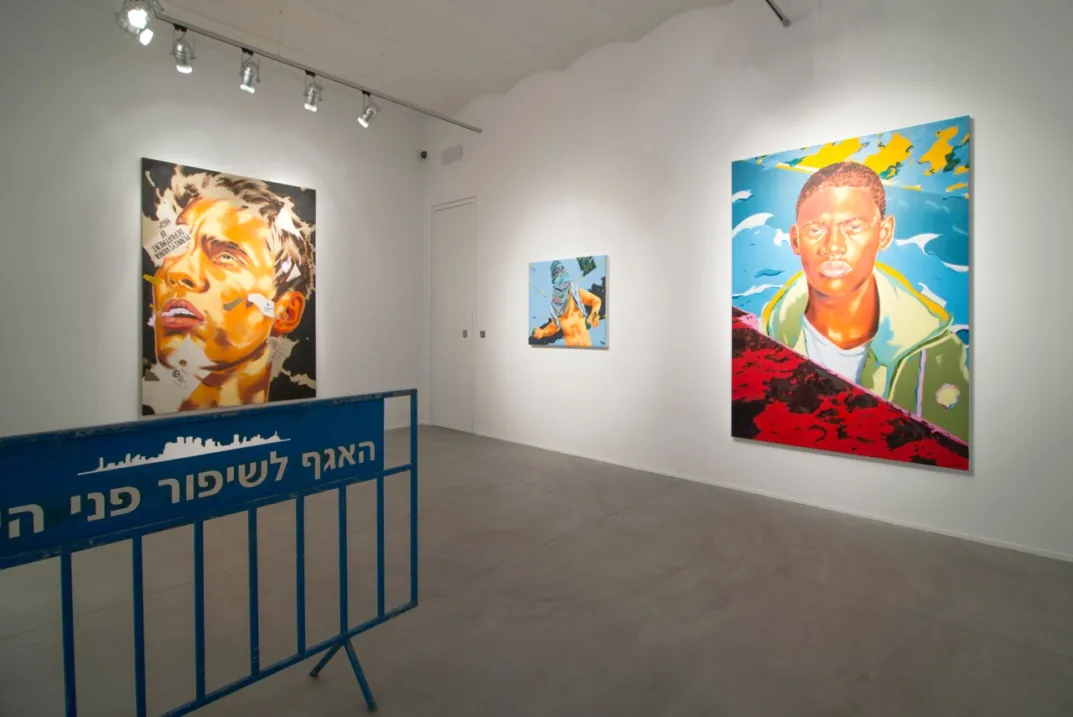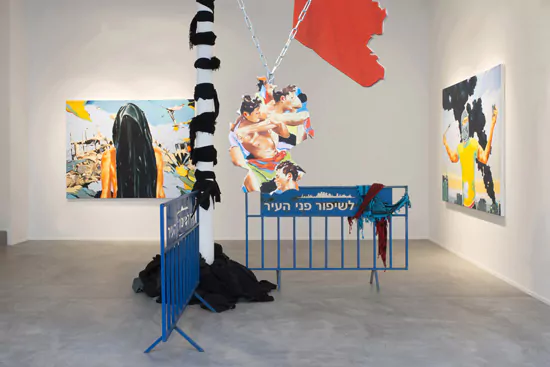
Norbert Bisky
Hérésie
For his first solo exhibition in Brussels at Galerie Daniel Templon, German artist Norbert Bisky presents a complete new body of work, including a site-specific installation. The title of the show, « Heresie », reflects Norbert Bisky’s concern about uncertainties, clashes of religion and crisis of belief in our times.
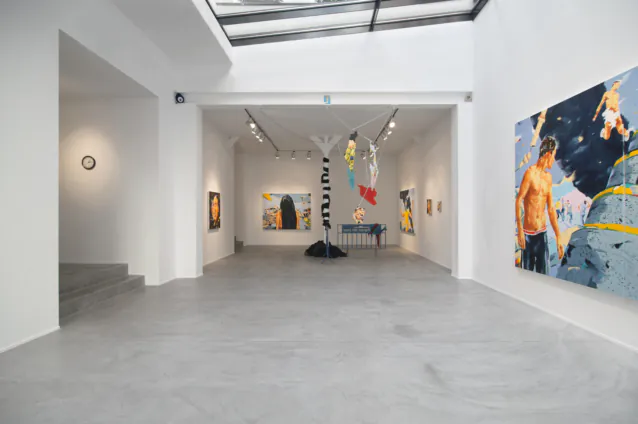
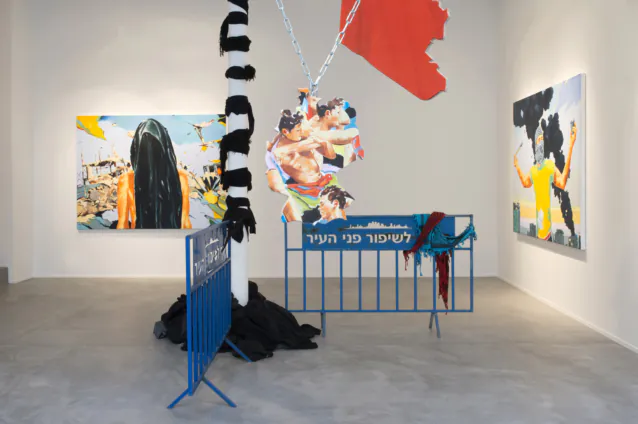
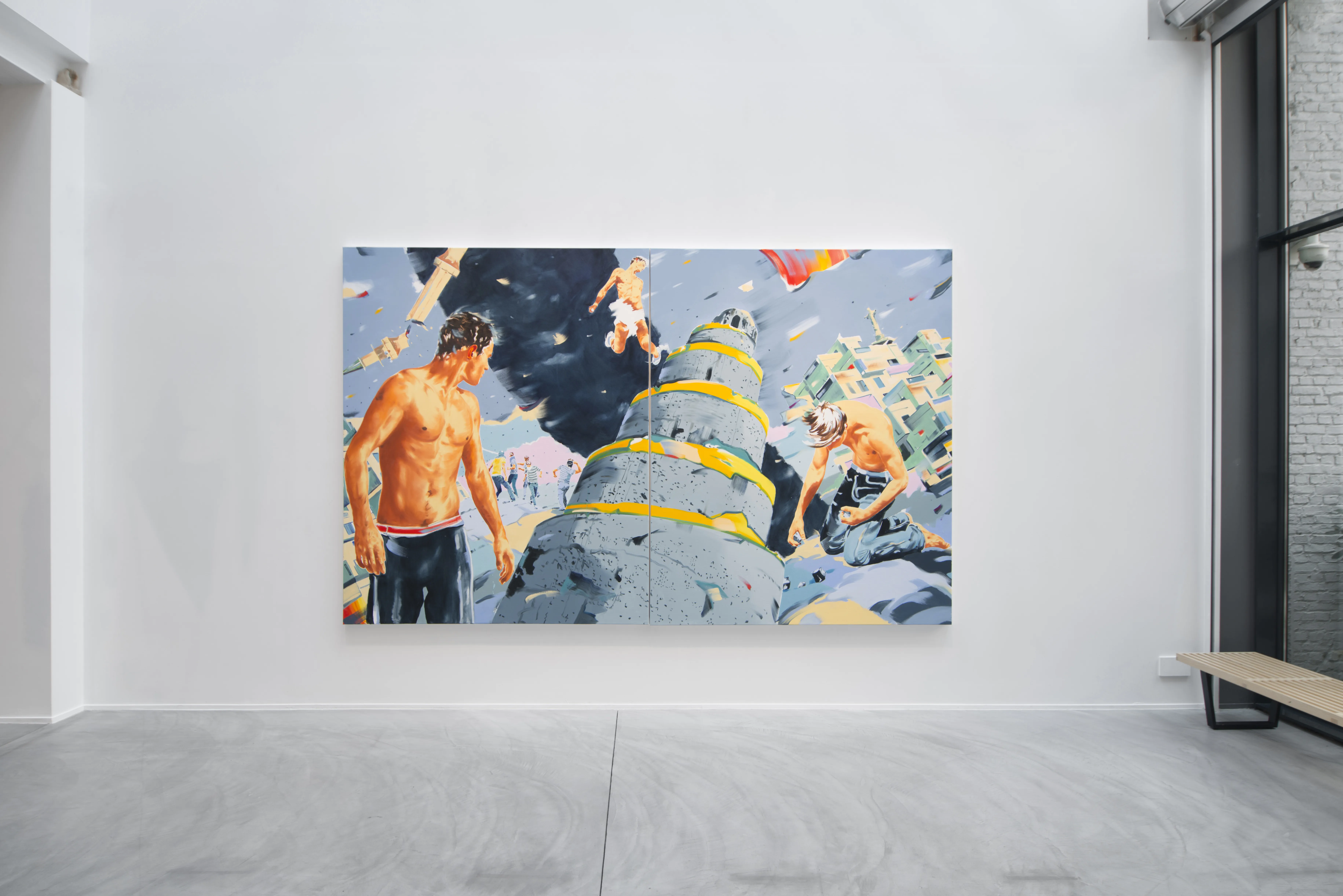
The artist’s 3 month studio-swap and temporary home in Tel Aviv in the beginning of 2015 with its unfolding religious, sociologic, historical and contemporary discourses set the basic for the new series. Merging conceptual ideas with painterly tradition, the artist includes for the first time additional media to his figurative paintings, presenting collage-like sculptural works, using found material as clothes, bank bags and sugar bags. Norbert Bisky’s figurative style of painting, conjuring up the socialist realism he experienced as a child in East Germany, is striking in its use of shimmering colours and its apocalyptic visions.
Norbert Bisky likes to create a link between chaos and beauty. He combines elements taken from our contemporary hedonistic culture with reminiscences of past ideologies. His treatment of landscapes and exploration of the portrait and narrative structure place him firmly in the tradition of great European painting. However, Norbert Bisky’s experiments with breaking down forms and blocks of colour sometimes put him on the borderline of abstract art.
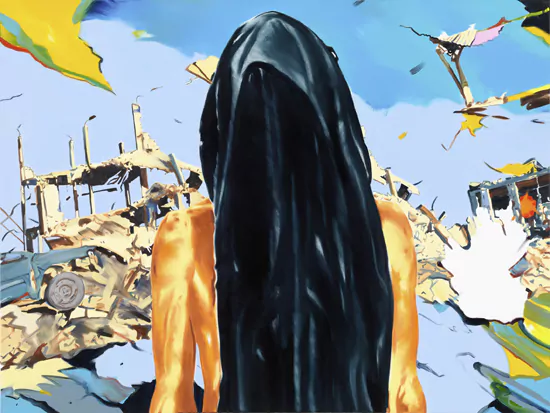
Blast
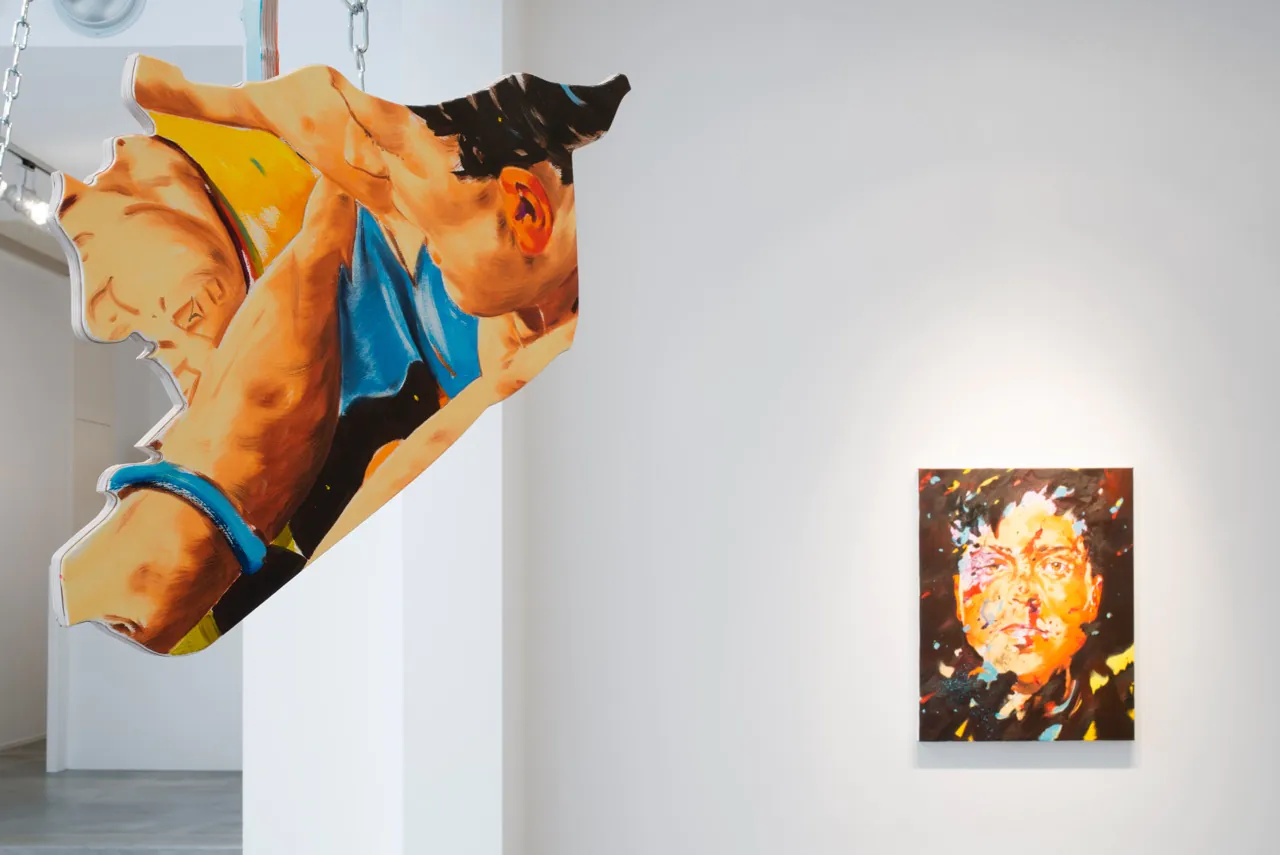
The artist
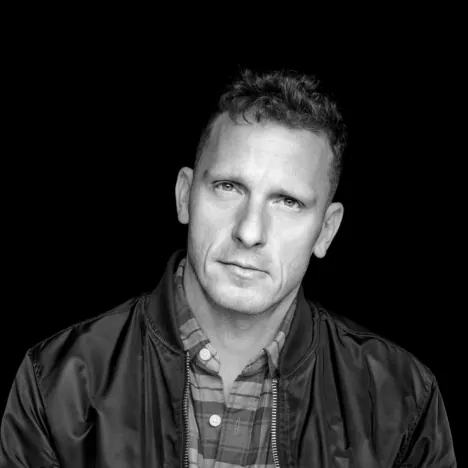
Norbert Bisky was born in 1970 in Leipzig, Germany. His treatment of landscapes and exploration of the portrait and narrative structure place him firmly in the tradition of great European painting. But Norbert Bisky's experiments with breaking down forms and with blocks of colour also place him on the borderline of abstract art. His figurative style of painting, conjuring up the socialist realism he experienced as a child in GDR, suggests both hedonism and chaos in its contemporary form.

